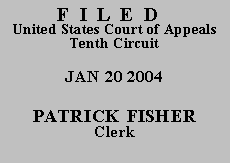

| UNITED STATES OF AMERICA, |
|
From January to September 2002, Mr. Durante embezzled approximately $218,287.16 from NMTHA while employed as CFO of that organization. NMTHA was an organization created in September 2000 in hopes of becoming a licensed managed care organization which would provide Medicaid reimbursable health care services to Native Americans in New Mexico. The application notes to § 2B1.1 define a "financial institution" quite broadly to include "any health, medical, or hospital insurance association," which would include "associations that undertake to provide . . . other benefits (e.g., medical or hospitalization insurance) to large numbers of persons." U.S.S.G. § 2B1.1, cmt. n.1. However, it is uncontroverted that NMTHA was not to provide medical insurance or similar benefits, but rather only reimbursable health care services. For this reason, § 2B1.1 is inapplicable. The district court's ruling on the applicability of the guideline constituted plain error which affected Mr. Durante's substantial rights. See United States v. Whitney, 229 F.3d 1296, 1308 (10th Cir. 2000). Though the district court's ruling is certainly understandable based upon the parties' concession, the case must be remanded so the district court may vacate the sentence and resentence in accordance with this order and judgment.
REMANDED.
Entered for the Court
Paul J. Kelly, Jr.
Circuit Judge
*. This order and judgment is not binding precedent, except under the doctrines of law of the case, res judicata, and collateral estoppel. This court generally disfavors the citation of orders and judgments; nevertheless, an order and judgment may be cited under the terms and conditions of 10th Cir. R. 36.3.
2. After examining the briefs and the appellate record, this three-judge panel has determined unanimously that oral argument would not be of material assistance in the determination of this appeal. See Fed. R. App. P. 34(a); 10th Cir. R. 34.1(G). The cause is therefore ordered submitted without oral argument.
1. Although U.S.S.G. § 2B1.1(b)(12)(B) (Nov. 2002) provides for a four-level enhancement, if the resulting offense level is less than 24, that offense level is increased to 24. Hence, the effect of applying U.S.S.G. § 2B1.1(b)(12)(B) was a six-level enhancement.